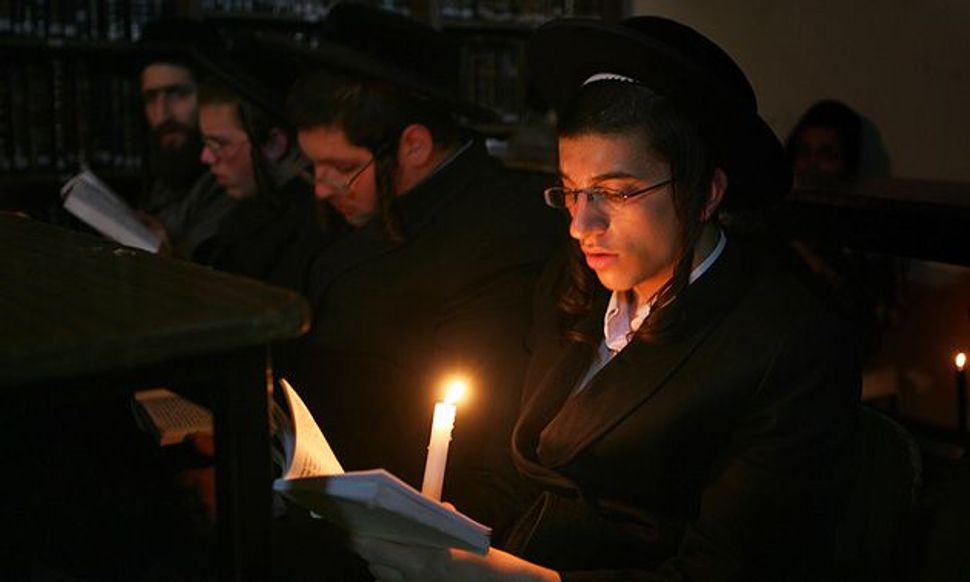Why We Mourn on the Ninth of Av

Image by Getty Images
There are some good reasons why many religiously liberal, non-Orthodox Jews choose not to observe Tisha B’Av: We do not yearn for the restoration of animal sacrifice to our worship of God, so it seems strange to take part in that day’s mourning for the First and Second Temples, both of which are said to have been destroyed on the ninth day of the month of Av. Nor do we particularly identify with the day’s dominant theological message, namely that we are responsible for the catastrophe, that God permitted our enemies to lay waste to the land and our people as an act of judgment of our sins.
We liberal Jews, of course, are not the only ones who find it difficult to swallow these themes. But for us, that difficulty lies at the very heart of our liberal religious identity. We are *liberal *Jews in large part because our modern sensibility recoils at this simplistic notion of guilt and punishment. We cannot say with the traditional Siddur that “on account of our sins we were exiled from our land,” and we most definitely refuse to join those who apply such logic to rationalize the subsequent persecutions, pogroms and exterminations that darken the pages of our history.
Yet some of us liberal Jews insist upon observing Tisha B’Av. This is true even in my own Reform movement, where the holiday has made a rather impressive comeback in recent decades. Given all the above, what gives? How do we explain this apparent inconsistency?
The answer, perhaps, is that we have learned some valuable lessons during the two centuries of liberal Judaism’s existence.
We have learned, first of all, that there is no such thing as Judaism without the Jews and the historic experience of our people. Our religious ideas, however high-minded, remain lifeless abstractions so long as they are divorced from the concrete experience of the Jewish people throughout the ages. We have learned that our Judaism requires that we identify with that experience in its entirety. Churban habayit, the destruction of the Temple(s), is a symbolic memory for the Jews, a commemoration not only of those traumatic historical events but also of the ongoing experience of trauma in our history. No, we do not mourn the disappearance of sacrificial worship, and we do not look forward to its return. Yet we are Jews, and we cannot contemplate Tisha B’Av and remain dispassionate and unmoved by all that it has come to represent.
We also have learned something about our response to tragedy. No, we do not buy the theory that our own sins are the sole or even predominant cause of our suffering. (Neither did Job. And, as it turns out, he was right, and his so-called friends were wrong.) But we have discovered that the struggle to find meaning in suffering, even in suffering that defies all attempts at rationalization, can be an uplifting thing.
We have learned to read the traditional liturgy of Tisha B’Av — the biblical book of Eicha (Lamentations), the day’s Torah readings, the *kinot *(dirges) — not as an effort to explain or to justify the destruction but as a call to respond to it by redoubling our commitment to search our souls, to purify our conduct and to renew our shaken-but-not-shattered faith in the ultimate triumph of good over evil. This way of response permits us to acknowledge tragedy in all its darkness, but it forbids us to yield to a sense of helplessness and despair. And that’s why some of us liberal Jews will be in shul this Tisha B’Av.
May God comfort us all among the mourners of Zion and Jerusalem.
Mark Washofsky is a professor of Jewish law and practice at the Hebrew Union College-Jewish Institute of Religion in Cincinnati. He chairs the Responsa Committee of the Central Conference of American Rabbis.



















